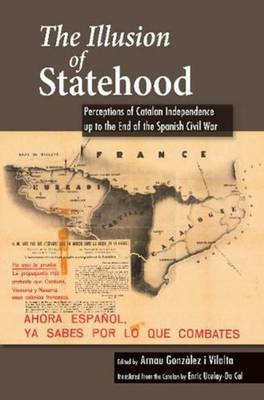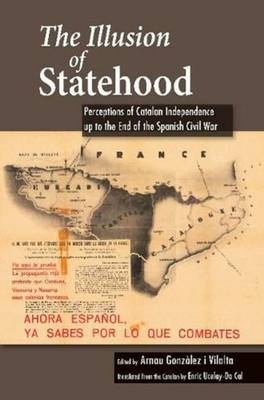
- Retrait gratuit dans votre magasin Club
- 7.000.000 titres dans notre catalogue
- Payer en toute sécurité
- Toujours un magasin près de chez vous
- Retrait gratuit dans votre magasin Club
- 7.000.0000 titres dans notre catalogue
- Payer en toute sécurité
- Toujours un magasin près de chez vous
The Illusion of Statehood
Perceptions of Catalan Independence Up to the End of the Spanish Civil War
132,95 €
+ 265 points
Description
In October 1936, as the Spanish Civil War turned a tension in peripheral Europe into a European disaster, the Ministers of Foreign Affairs of Nazi Germany and Fascist Italy signed a series of agreements detailing the need for a common action to prevent the creation and consolidation of a Catalan State. The backdrop to the revolutionary charades, the self-evident dangers of totalitarian states, and the conservative enthusiasms of Francos Spanish nationalists lay in the potential of Catalonia seceding. What would be the internal and international implications? The postwar world of 19191923 created political patterns that gave heart to many sub-state nationalisms patterns that hardened into conflictual shape, especially after the rise of Hitler in early 1933. Contributors to the volume trace the convictions of journalists, observers and diplomats that a Catalan split-off was inevitable. But Catalan politics blew in quite another way, later reacting to Soviet dis-interest and British indecisiveness, amongst a host of other pressures. Placing Catalonia and the Catalan nationalist movement in the foreground of contemporary Spanish discourse reveals why present internal complexities require a historical dimension that takes into account early twentieth-century pan-European/ pan-international movements that supported or decried secession, albeit for widely differing nationalist motives. Not least were the perceived and feared reactions of minority populations, and the potential strategic geographic/diplomatic consequences for European leaders. In a way, the unfolding of antagonisms on the international and European scene led to the internal Spanish conflict. The Illusion of Statehood takes the reader away from the bluster of left/right politics and the potentialities of social revolution toward a better understanding of how Catalan independence was viewed by European states and powers. This thoughtfully argued book is essential reading for all historians and students of twentieth-century European history. It provides a much-needed reasoned perspective on the Catalan issue and its historical antecedents.
Spécifications
Parties prenantes
- Traducteur(s):
- Editeur:
Contenu
- Nombre de pages :
- 320
- Langue:
- Anglais
- Collection :
Caractéristiques
- EAN:
- 9781789760323
- Date de parution :
- 01-10-19
- Format:
- Livre relié
- Format numérique:
- Genaaid
- Dimensions :
- 150 mm x 231 mm
- Poids :
- 612 g

Les avis
Nous publions uniquement les avis qui respectent les conditions requises. Consultez nos conditions pour les avis.





